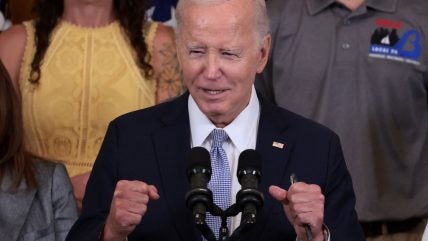
The US Department for Health and Human Services (HHS) has sent the first offers to participating drug companies eligible for negotiation under the Medicare price negotiation programme as required by the Inflation Reduction Act (IRA).
The Centers for Medicare and Medicaid Services is managing these talks, with a 30-day window given to involved drug companies to indicate acceptance of the suggested prices or present an alternative offer. Once both Medicare and the drug company agree on a price, the revised prices will become effective within Medicare in 2026.

Discover B2B Marketing That Performs
Combine business intelligence and editorial excellence to reach engaged professionals across 36 leading media platforms.
The IRA allows Medicare to directly negotiate to reduce prescription prices for certain drugs and requires certain companies to pay rebates back to Medicare if the drug prices exceed the rate of inflation. The first ten drugs selected to be negotiated in the programme include those marketed by pharma giants AstraZeneca and Merck & Co’s anti-diabetic drugs, Farxiga (dapagliflozin), and Januvia (sitagliptin), respectively.
In the announcement accompanying the offers, CMS administrator Chiquita Brooks-LaSure said: “Throughout the negotiation process, CMS is dedicated to improving access to some of the most expensive drugs for people with Medicare while encouraging market competition and fostering innovation.”
The negotiation process has however not been smooth. Industry lobbies such as the Pharmaceutical Research and Manufacturers of America (PhRMA) have consistently come out in opposition to the proceedings. In response to these initial offers, PhRMA’s public affairs senior vice-president Alex Schriver said: “Government bureaucrats are operating behind closed doors to set medicine prices without disclosing for months how they arrived at the price or how much patient and provider input was used.”
After some hesitance, all the companies that manufacture the ten selected drugs have agreed to participate in the negotiation process, which should end by 1 August 2024.

US Tariffs are shifting - will you react or anticipate?
Don’t let policy changes catch you off guard. Stay proactive with real-time data and expert analysis.
By GlobalDataAlongside the announcement of the initial offers, HHS’s Office of the Assistant Secretary for Planning and Evaluation (ASPE) also released several reports comparing US prescription drug costs to those in other Organisation for Economic Co-operation and Development (OECD) countries. As per the report, in 2022, prescription drug costs in the US were almost three times as expensive as in 33 other OECD countries, with US consumers paying $2.78 for every dollar spent on drugs abroad.




